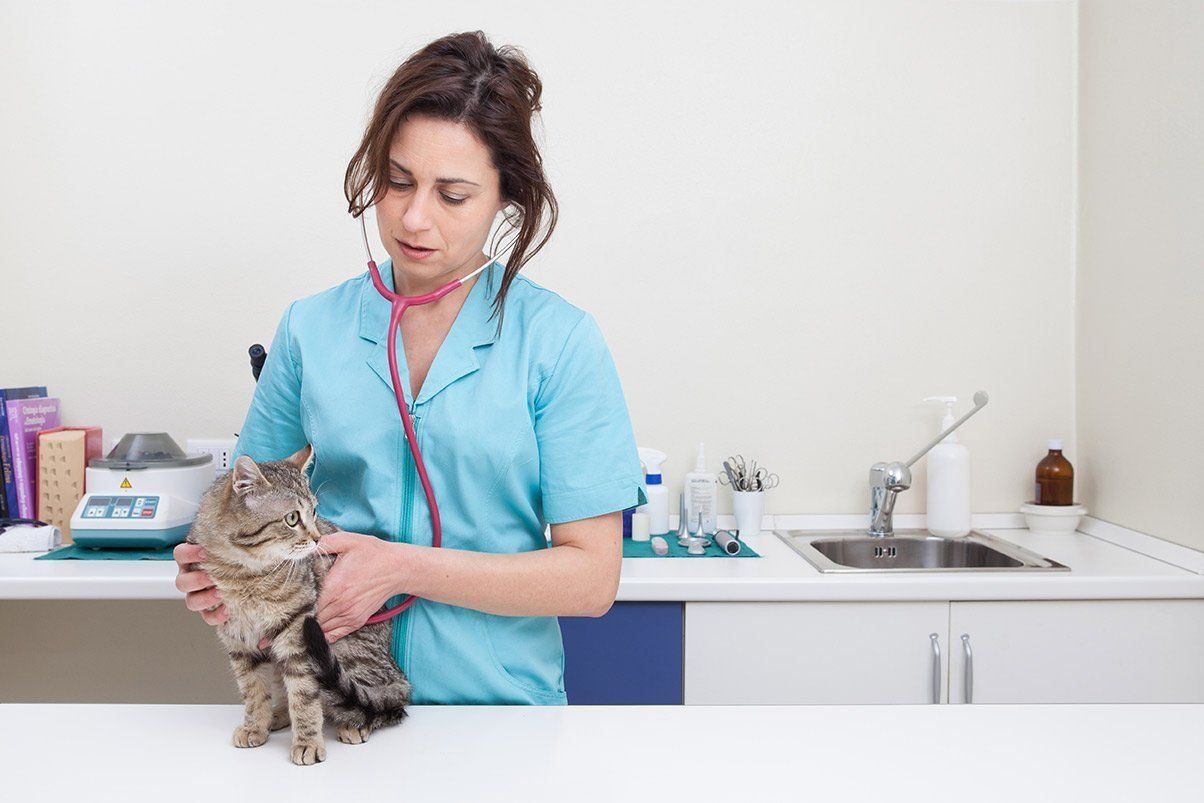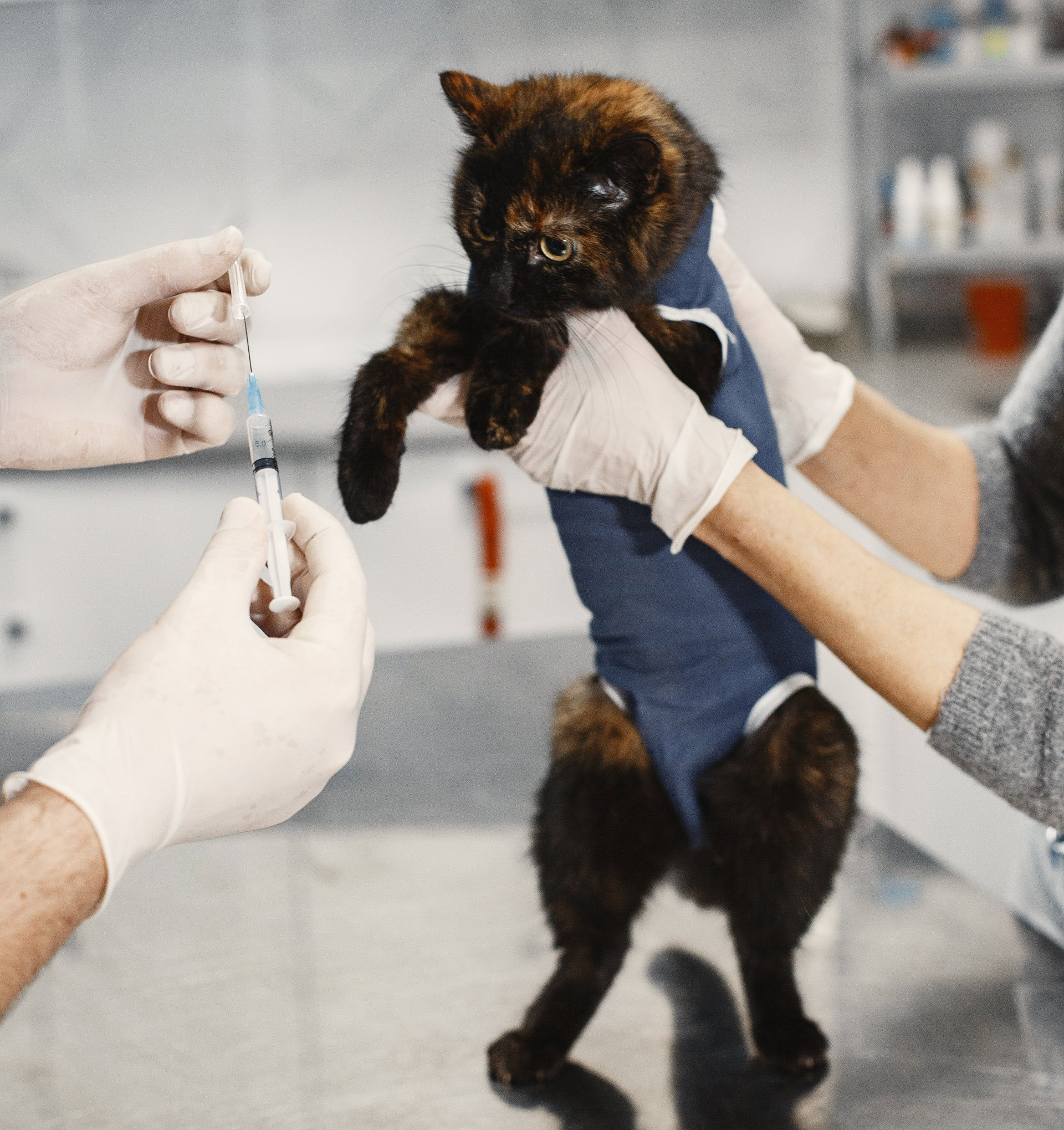Get in touch
555-555-5555
mymail@mailservice.com

Your First Cat
Congratulations on the newest member of your family! Whether you’re adopting a kitten, adult, or senior cat, there are some basics to know before bringing them home.
Find a veterinarian
Make an appointment with a veterinarian before you bring your new cat home. You don’t need to bring them to the clinic on day one, but having them evaluated within a few weeks is a good idea. Do some research before committing to a clinic - the best way to get an idea of a practice is by word of mouth referrals, but using online reviews is also helpful. If you’re not comfortable with your veterinarian, find a new one - in the long run it’s better to find someone you trust and enjoy working with.
It’s a good idea to know which emergency or urgent care clinic you would use for unexpected issues or if your normal clinic is completely booked and cannot accommodate you in urgent situations.
There are some objective markers of a high quality veterinary practice. For example, American Animal Hospital Association (AAHA) accreditation means the clinic has met a large number of rigorous standards which generally means the standard of care is exemplary. Fear Free certification indicates that the staff has gone through training to reduce the stress and anxiety your cat may experience at the clinic. Cat Friendly Practice (CFP) certified clinics optimize cat-specific medicine to reduce stress and elevate medical care.
What to expect at your first veterinary visit
At the first visit, you’ll be able to meet your veterinarian and go over any concerns or issues you may have. Don’t hesitate to ask anything! Coming with a list of questions can help keep you focused. A member of the team will ask you questions about your cat as well. Bring any paperwork you received so the veterinary team can figure out what tests and vaccines are recommended.

Vaccines
The core vaccines include Rabies and a combination vaccine called Distemper. Rabies is legally required since it is a fatal disease that can be transmitted to humans. Distemper is a combination of several viruses that cause upper respiratory and diarrheal conditions.
Additional vaccines recommended for your cat depend on its lifestyle. For example, cats that spend time outside unsupervised should be vaccinated against a cat-to-cat viral disease called feline leukemia.
Most of the above-described vaccines require booster shots spaced several weeks apart. Mild adverse vaccine effects are common and include soreness and lethargy. Less common side effects include facial swelling, hives, and gastrointestinal upset like vomiting and diarrhea. It is rare to have any sort of long-term side effect from vaccines. If your cat has a history of vaccine reactions, pre-medication with diphenhydramine can be useful.
Testing
The most important test done at a veterinary visit is a complete physical examination. Your veterinarian will check your cat from nose to tail, paying special attention to your areas of concern. Other routine testing in cats, especially those that go outside, includes yearly fecal sample checks for intestinal parasites. There is a test for feline leukemia and feline immunodeficiency virus, which is typically checked after adoption. This test may also be done after a scuffle with a cat with unknown viral status or annually for outdoor cats.
Depending on the age and health of your cat, other tests may be recommended. For example, if your cat has itchy ears, looking at the ear debris under the microscope will be helpful to guide treatment. A coughing cat should have chest x-rays taken. It is generally recommended that senior blood work is checked on older kitties. Following the advice of your veterinarian will help determine the best care for your cat.
Routine medications
All cats should be on year-round flea, tick, and heartworm prevention. There is a wide variety of products including long-acting flea and tick collars, spot-on topical products, and oral chews. The choice of product depends on where you live and your pet’s lifestyle - make a plan with your veterinarian to fit your cat’s needs.

Feeding
Though it’s tempting to leave the cat food down all the time, cats do better when fed in a structured pattern like breakfast and dinner. Feed a commercially available, well-balanced diet appropriate for your cat’s lifestyle and life stage (puppy, adult, senior). In general, diets that have undergone feeding trials to meet the requirements of the Association of American Feed Control Officials (AAFCO) are preferable over ones that are simply formulated to meet certain nutrient profiles without testing. If you ever need to switch your cat’s food, it’s best to do so gradually over the course of a week or so.
Insurance
Pet insurance is most valuable before any pre-existing conditions pop up. Signing up for pet insurance and having it come into effect even before your first veterinary visit is ideal. Many pet owners think of pet insurance after a significant injury or illness, but by then it’s too late! Make sure to research and thoroughly understand the plan you have to take full advantage of it.
Partner with your veterinarian
Your veterinarian and the staff at the clinic you choose are there to support you! Owning a cat is a lot of work and the team at your clinic is working for you to make your experience as easy and successful as possible. They work in veterinary medicine because of their love for animals and are happy to help.



